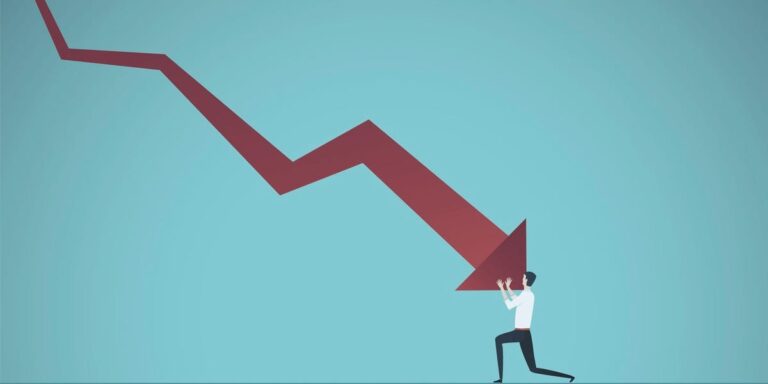- David Rosenberg says AI may boost stock prices, but it won't stop a recession.
- AI cannot change the fact that companies are going to face a debt refinancing shock.
- History shows that technological advances have never changed the course of business cycles, Rosenberg said.
As artificial intelligence continues to boost stock prices, proponents of the technology argue it could help avert an economic downturn that forecasters predict.
Don't get your hopes up, says economist David Rosenberg, president of Rosenberg Research, because AI can't change the trajectory of the business cycle enough to prevent a recession.
“The AI thesis is strong, but it may not be enough to prevent the economy from sliding into recession, especially as the business sector is experiencing one of the toughest refinancing cycles with interest rates 300 basis points above origination borrowing costs,” Rosenberg said in a Friday note.
Simply put, AI cannot mitigate the shock that would ripple through U.S. companies, which would have to borrow and raise capital at much higher interest rates.
Perhaps this breakthrough technology would lead to a sustained productivity surge, spurred by massive capital investment and investor enthusiasm, but history has shown that similar advances touted as big productivity boosts fail to transform the dynamics of business cycles, Rosenberg said.
In the late 1960s and early 1970s, companies such as American Micro Devices, Intel, and IMB created a computing boom that saw productivity increase at much higher annual rates.
“But guess what? We had two recessions, three years apart, and the economy was still feeling the effects, even with the lag, of the damage the Fed had already inflicted in terms of tightening policy,” Rosenberg wrote.
The collapse of the tech bubble that formed in the late 1990s led to a hard landing for markets and economies, despite the transformative power that the early internet promised at the time.
“Also, remember that while the technology sector accounts for 30% of the S&P 500's market capitalization, its share of GDP is much lower at 7%. The stock market is not the economy,” Rosenberg added.

